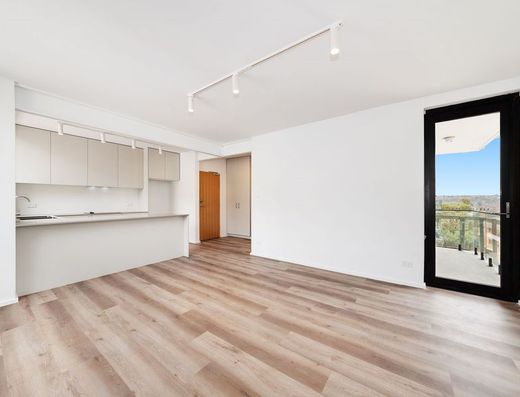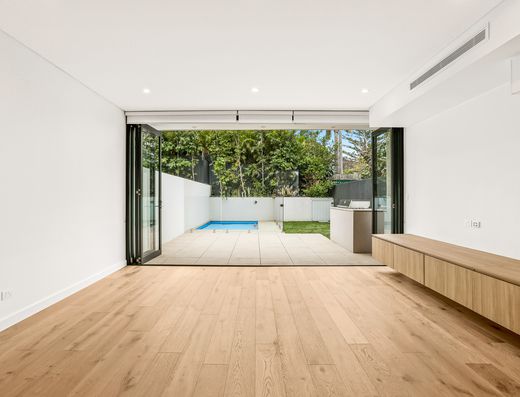The Rules Of Renting
The Budget Rules of Renting
The 30% rule
Most renters follow the 30% rule, which states that 30% of your income should be allocated to rent. Aim for a percentage of about 20%, but 25% is also a good target to strive for.
This may not always be possible on a low income, as average rents in your chosen area may well exceed 30% of your income.

The Barefoot Investor's guide to budgeting
Other approaches to managing your rental budget are available, but the Barefoot Investor's 'bucket' approach is popular. To simplify things, you divide your income into three categories:
1. Blow bucket
Blow Buckets are for day-to-day expenses such as rent, food, bills, splurges, and paying off debt.
You should allocate 60% of your income to daily expenses, 20% to debt or unexpected expenses, plus 10% for splurges and 10% for long-term savings.
Your Mojo Bucket contains any leftover money.
2. Mojo bucket
A Mojo Bucket gives you a safety net if you need it.
It would help if you began transferring any excess funds into your grow bucket once you have saved up three to six months' worth of living expenses.
3. Grow bucket
A Grow Bucket serves as an investment vehicle to build long-term financial security.
Speak with a trusted adviser or financial planner about ways to invest this money responsibly if you are unsure where to begin.

What is rental stress?
The Australian Bureau of Statistics (ABS) defines rental stress as a household spending more than 30% of its income on rent.
Currently, 32% of Australian households are renters, and 17% are under rental stress, according to the Australian Institute of Health and Welfare.
Let's say a couple takes home $3,000 weekly, and their weekly rent is $1,300. In reverse, we can determine what percentage of their income goes towards rent. Here's how it would look:
$1,300 / $3,000 = 0.43
They are spending 43% of their income on rent, which is a lot. Rent stress would technically apply to the couple.
Five ways to avoid rental stress and lower your rent
There are times when it can be difficult to avoid high rent, particularly if you need to be in a particular area to work, study, or send your children to a particular school. Nevertheless, you can do a few things to avoid getting into financial trouble.
1. Set a budget and be realistic
With a budget, you will know exactly where your money is coming from and where it is going.
Calculate your weekly income by listing all your sources of income (e.g., work and investments).
You should also keep a record of any ongoing expenses, such as rent, food, bills, gasoline, childcare, and other non-negotiable expenses. Calculate how much you spend on extras such as going out, clothes, coffee, etc.
You can determine how much of your income goes towards various expenses by giving yourself a clear picture of your income and spending.
There may even be opportunities to save a bit of money by cutting back on certain items. For example, you may save around $20 per week by making coffee at home rather than buying it from a cafe.
That equates to over $1,000 every year.
2. See if you can negotiate
Real estate agents and landlords may be able to lower your rent if you're already renting a place. Obtain rent figures in your area for similar homes to get an idea of what others are paying, and discuss it with your agent to see if the landlord is willing to negotiate. Reliable long-term tenants can very well take advantage of this.
Your rent may also be reviewed if it's up for renewal. Make sure the prices justify your rent increase in your area. In case you feel it's excessive, you can always push back.
If you're moving, you might be able to negotiate a rent reduction in exchange for a longer lease if you're applying for a new place. Vacant properties are a hassle for landlords, and it can take a long time to find good tenants.
If you cannot make rent that week, you should speak to or email your property manager or landlord to work out a solution.
3. Go for a more affordable option
You may be able to sacrifice certain things for cheaper rent if you consider what you can do without.
One suburb over, for instance, may allow you to reduce costs. Alternatively, you could opt for a home with a small courtyard instead of a big yard.
4. Split the cost of rent
A housemate can mean a huge reduction in rent if you have a spare room and can share it with someone else. The savings can be even greater if you split other costs, such as electricity, gas, cleaning supplies, and groceries.
If you have a parking spot you don't use; you could even consider renting that out, too - especially if you live in an inner-city area near a workplace. Depending on where you live, you might be restricted from renting your car spot (if you live in an apartment).
You can look for housemates on Flatmates.com.au.
5. Consider buildings with amenities
Happy to live in an apartment or housing complex? The building may even have amenities such as a gym, tennis court, pool, parking, external storage, or co-working spaces.
If you already spend money on these inclusions, you can save.
Cutting back on other areas will improve your overall budget, even though your weekly rent may be higher.





